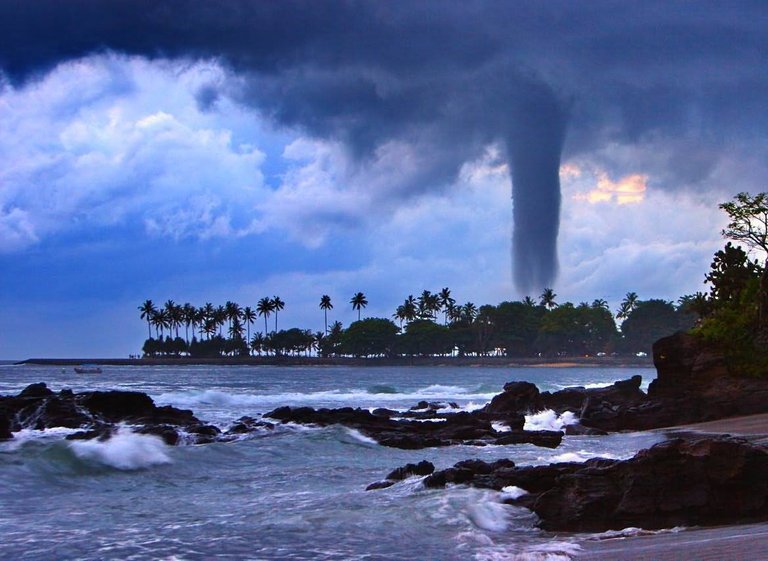
black series of cyclones that sweep in the beginning of the fall of the tropics has t-it lessons climate ? Yes, and not only in terms of climate change caused by our emissions, massive greenhouse gas emissions.
Let's start with the question that annoys. The journalists ordered to do so by editors-in-chief-hungry simplisme, pose to scientists, not always specialists in cyclones... but this is what we find. The cyclones today, Maria, Irma, Katia, etc... are they caused by the ongoing climate change ? In other words, would not they have taken place in his absence ?
Pro and anti have already the answer
Thus posed, the question already has answers opposite in the public space. Assénées by the activists of the climate – the pro like anti. No one has anything against the climate, of course. But the " pro " are the activists of NGOS who are not necessarily choosy about the scientific quality of an argument is that it seems convincing. Thus, for them, Irma and owes its existence to our coal-fired power plants. As for the "anti" , just as indifferent to science, they are nevertheless without any problems of arguments in appearance more presentable, in the long series of cyclones that show little for the moment for a major change in their frequency, intensity, remaining more delicate to measure, for the distant past. The comic from the use of this article by the climatosceptiques usual lies, however, in this sentence of the abstract : "During the 20th century, a significant increase in the number of cyclones has occurred after the 1950s."
The latest Ipcc report accurate and for the increase of the activity of the most intense cyclones "a degree of low confidence" to "long term changes" in the past even if they are "virtually certain in north Atlantic since 1970". As for the future, at the end of the century, this increase is considered to be "more likely than not to be realized at a regional scale and globally."
Therefore, it is not worth going back to basics, as we say in rugby.
Probabilities
► It is impossible to establish a causal link between a weather event isolated, and a pattern of ongoing climate.
► In contrast, a posteriori analysis, based on a set of numerical simulations that explore possible climate change, and a climate changed can evaluate the probability of occurrence of a weather event as a function of these two climates. Thus, it has been established that change due to the intensification of the greenhouse effect had made it more likely the floods in Britain in 2007. In 2014, a statistical study of the Met Office uk showed that an episode of heavy rain that had a chance in 125 to occur between 1960 and 1970 had a chance on 85 of to occur for the years post 2000. Same demonstration for the heat wave/drought in Russia in 2010. A study published in Science last August has shown, for example, that over the last 50 years, the dates of the flooding of the rivers and rivers of Western Europe have been advanced in the spring because of climate change.
We will therefore later, when meteorologists and climatologists have made this work for the hurricane season 2017, if it carries or not a "mark probability" due to ongoing climate change. A science that is totally opposite to the request of the media system immediate answers : dear readers, you will have the answer to your question in a few months or even longer.
► The risks of cyclones more intense or more frequent in a warmer climate at the end of the century are poorly known. Their simulation remains difficult. Reasoning simplistic, not involving the elevation of the temperature of the first hundred meters of the ocean water could conclude that the increase in their frequency, but this is not demonstrated by the numerical simulations. In fact, the formation of a cyclone also depends on the set of the troposphere and the gradient of temperature, as well as winds at high altitude for its intensification. However, the overall warming alters little the vertical profile of temperatures, the catalyst cyclonic phenomena. Their number may not vary or even decrease a bit with warming.
The mass of the hurricane in the future is it called ? No.
@originalworks
To call @OriginalWorks, simply reply to any post with @originalworks or !originalworks in your message!
For more information, Click Here!
To nominate this post for the daily RESTEEM contest, upvote this comment! The user with the most upvotes on their @OriginalWorks comment will win!Congratulations @asteemone! You have completed some achievement on Steemit and have been rewarded with new badge(s) :
Click on any badge to view your own Board of Honor on SteemitBoard.
For more information about SteemitBoard, click here
If you no longer want to receive notifications, reply to this comment with the word
STOP